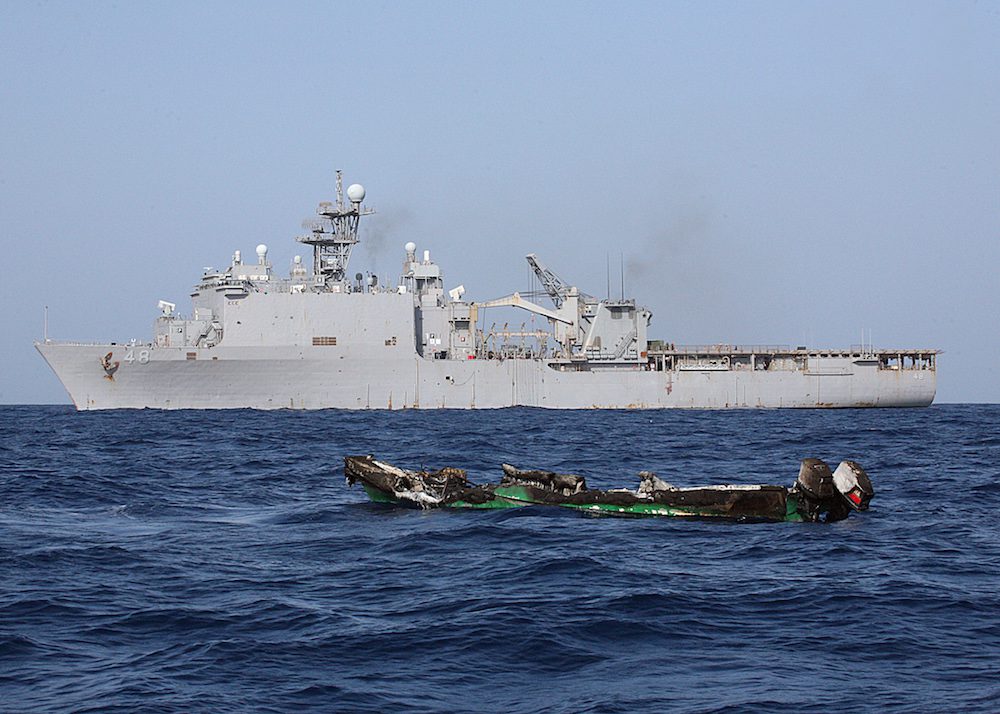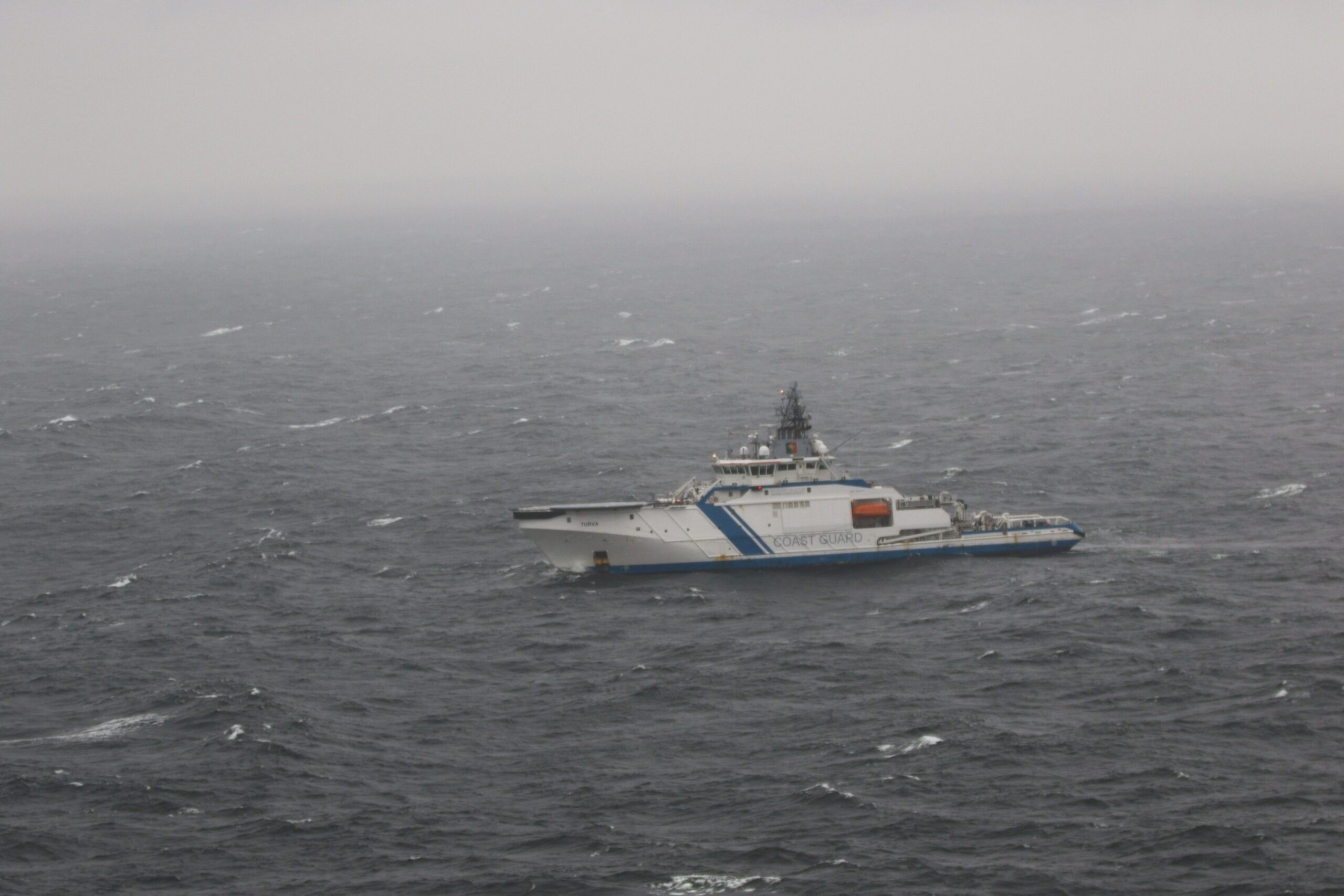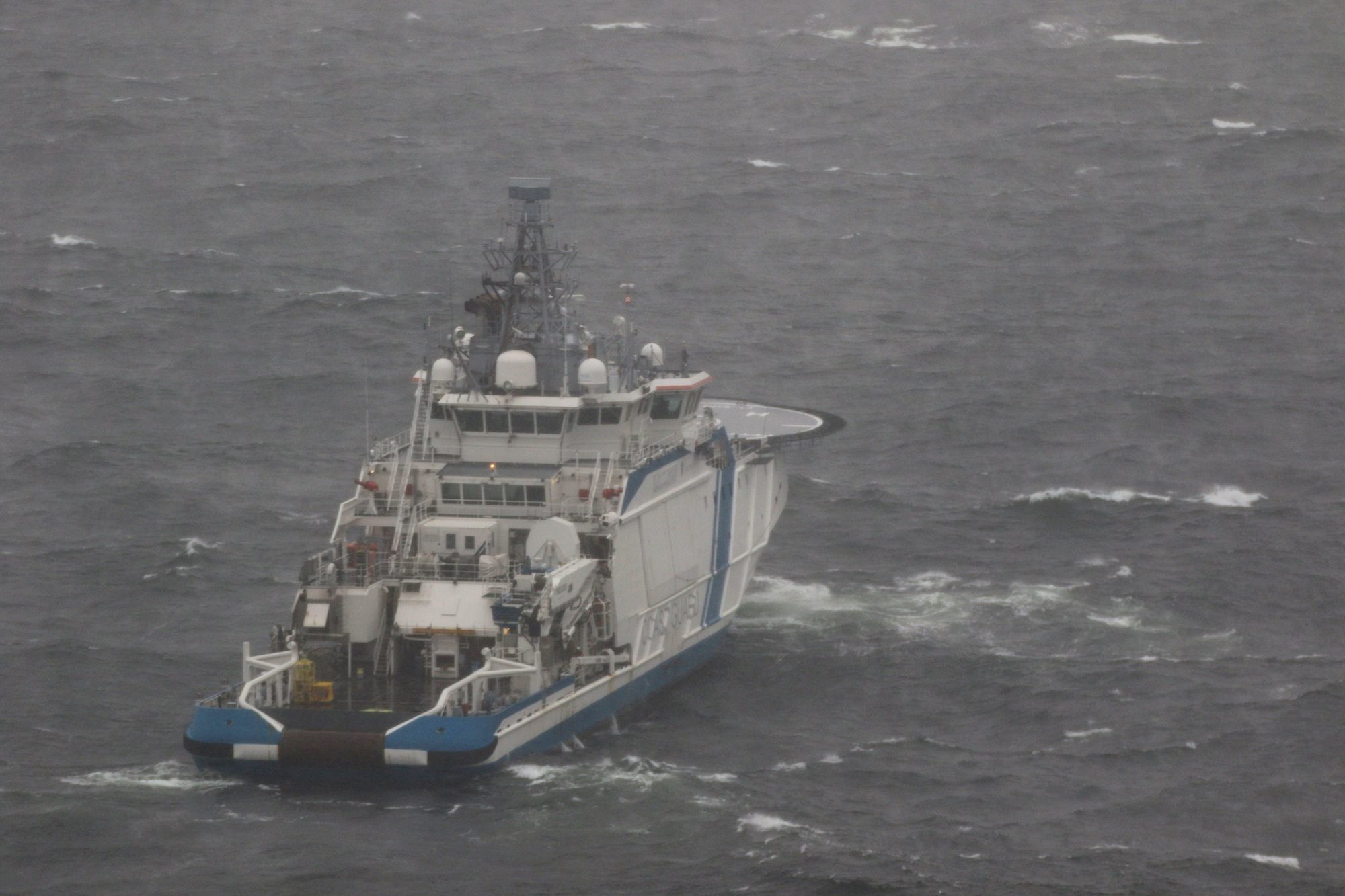The burned out hull of a suspected pirate skiff drifts near the amphibious dock landing ship USS Ashland (LSD 48), following the April 10, 2010 attack in the Gulf of Aden. U.S. Navy Photo
A U.S. federal judge has sentenced a Somali man to life plus 10 years in prison for his role in the unsuccessful pirate attack on the the U.S. Navy ship USS Ashland in April 2010.
Mohamed Farah, 31, was one of five Somali men found guilty by a federal jury in February 2013 of engaging in piracy and committing other offenses pertaining to the attack on the Ashland.
According to court documents and evidence presented at trial, Farah and five co-conspirators attacked the USS Ashland on April 10, 2010 in the Gulf of Aden. Four of Farah’s co-conspirators were previously sentenced for their roles in the attack: Jama Idle Ibrahim (15 years in prison), Mohamed Ali Said (33 years), Mohamed Abdi Jama (life plus 30 years) and Abdicasiis Cabaase (life plus 30 years). The defendants had also previously gone to sea in February 2010 with the purpose of capturing another vessel for ransom, but were instead, intercepted by the HMS Chatham of the United Kingdom’s Royal Navy. A sixth pirate from the attack on the USS Ashland, Abdi Abshir Osman, was sentenced to life plus 10 years.
During the attack, which occurred approximately 330 nautical miles off the coast of Djibouti, the USS Ashland was fired upon by suspected pirates aboard skiff. The Ashland was hit by small arms fire on the port side and, in accordance with her rules of engagement, returned fire and destroyed the skiff. The six suspected pirates abandoned the skiff and were later picked up by the crew of the Ashland and brought to the U.S. for prosecution.
The piracy charge against the men were originally dropped after a U.S. judge ruled that the group did not rob, board or take control of the vessel. However, the charge was later remanded in 2012 when a federal appeals court, ruling on a separate but similar case involving an attack on the USS Nicholas in 2010, clarified the definition of piracy on the high seas to include any attack on a ship, even if unsuccessful.
“These men were pirates—plain and simple,” said U.S. Attorney MacBride upon their conviction in 2013. “They attacked a ship hoping to hold it ransom for millions of dollars. Few crimes are older than piracy on the high seas, and [the] verdict shows that the United States takes it very seriously.”
Farah was sentenced today by U.S. District Judge Raymond A. Jackson for the Eastern District of Virginia.
Related Reading: U.S. Appeals Court Clarifies: Successful or Not, Attacking a Ship IS Piracy
Unlock Exclusive Insights Today!
Join the gCaptain Club for curated content, insider opinions, and vibrant community discussions.

 Join The Club
Join The Club











